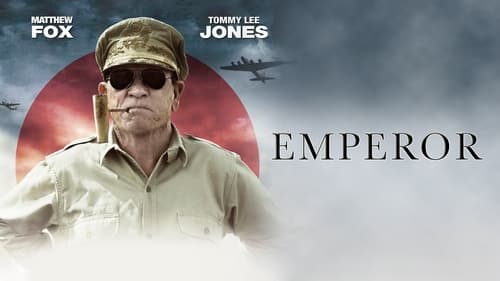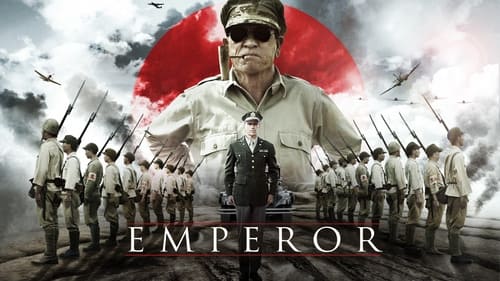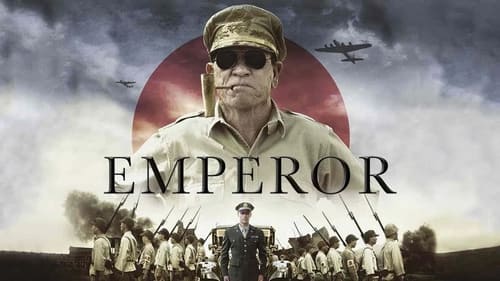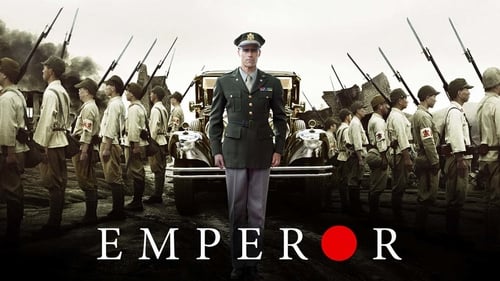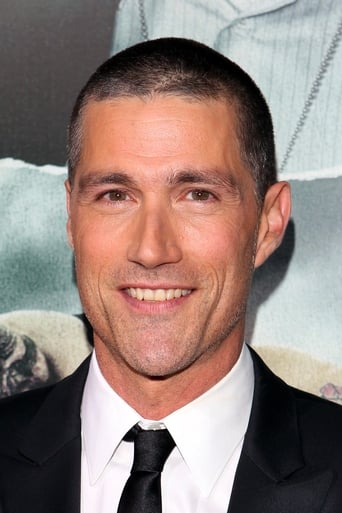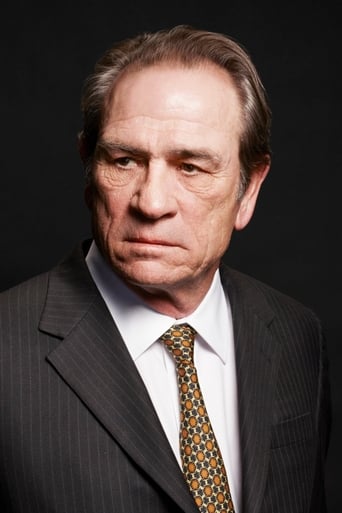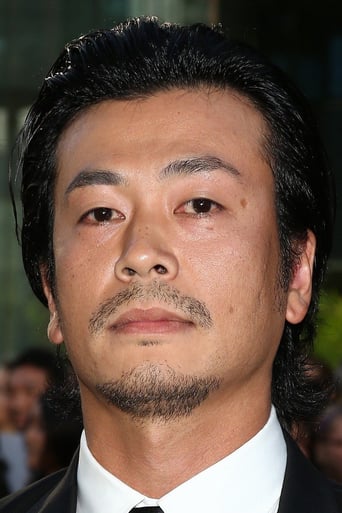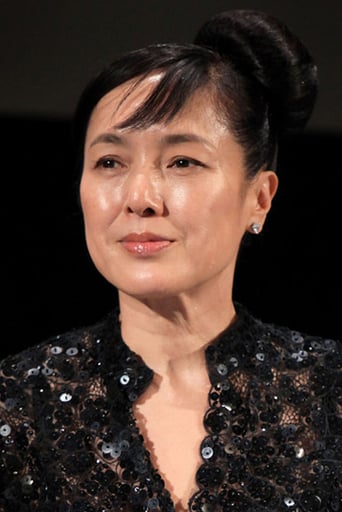Brightlyme
i know i wasted 90 mins of my life.
Cleveronix
A different way of telling a story
Kodie Bird
True to its essence, the characters remain on the same line and manage to entertain the viewer, each highlighting their own distinctive qualities or touches.
charmwayster
It seems that historical movies like this are getting harder to find. It is an movie about an American general in Japan just after their surrender. He has an assignment to determine if Hirohito should be tried as a war criminal.
don2507
As a history buff I enjoyed this film. It's a thoughtful and (for the most part) balanced view of the dilemma facing MacArthur and the American occupation of what to do about Emperor Hirohito at the end of the Pacific war. The American public and the Justice Department want the emperor tried as a war criminal and most likely hanged, while MacArthur knows he needs the emperor and his mystical appeal to the Japanese as a veritable god to effect the enormous political and social changes that he and the occupation authorities are planning for post-war Japan. In addition, the United States is beginning to see Japan as a potential ally in east Asia as relations with the Soviet Union deteriorate and the Chinese civil war continues. But MacArthur has his eye on the Presidency in 1948 and so he instructs his associate Brig. General Bonner Fellers (Matthew Fox) to evaluate in only 10 days whether Hirohito should be arrested and tried as a war criminal, thus displacing some of the anger of the American electorate onto Fellers if Hirohito is not tried. The 10-day evaluation period comprises a search for Hirohito's associates to solicit exonerating information about the emperor's wartime culpability and constitutes the focus of the film.Tommy Lee Jones plays Gen. MacArthur and he conveys the necessary swagger and command presence (see "The Fugitive") that the imperious general wore like a second skin. He doesn't have MacArthur's famous speech diction, and in this regard Gregory Peck made a better MacArthur. Matthew Fox makes a very conscientious Gen. Fellers, and the Japanese actors, who are obscure to us but famous in Japan, do a marvelous job of portraying dignified, protective, demure (dare I say it: inscrutable) imperial officials who cannot explicitly exonerate the emperor but neither can they point to incriminating evidence. The emperor's role in 1930s-1940s militaristic Japan was indeed inscrutable; he did more than simply rubber-stamp the militarists' aggressive plans but his responsibility as head of state in such a government and culture was hard to evaluate, and the Japanese officials Fellers interrogated said as much. It is, however, interesting to note that more recent histories of Hirohito's role in wartime Japan have suggested his culpability was greater than earlier thought. In the film Gen. Fellers uses Hirohito's role in overcoming Japan's August 1945 Cabinet deadlock by directly speaking to the Japanese people to "endure the unendurable" to justify maintaining the emperor's role in post-war Japan, and MacArthur agrees which allows him to meet with the emperor, have that famous photo taken with just the two of them, and then proceed to unify the Japanese under the emperor's continuing presence to effect his reforms and to make Japan a U.S. ally in the post-war world.It is interesting to note that some of the same political (cold-war) issues were confronted in Stanley Kramer's "Judgment at Nuremberg"; some of the U.S. occupation officials in Germany were advising the prosecutors to be lenient with some of the Nazi judges on trial because Germany was going to be needed as an ally against the Soviets. Was "justice" conferred on Hirohito? Probably not, according to some recent post-war histories, but as "Emperor" honestly depicts, both the senior Japanese leaders and the American occupation officials, most of all MacArthur, realized that Japan could not be rebuilt and reformed, at least not as quickly or as easily, without the emperor's presence as a unifying symbol, albeit a de-divinized one, in post-war Japan.
endersgame1972
I was very moved by this film as a History Buff I found the Insight in to Japanese culture to be very Insightful and Enlightening.You don,t find much in the way of film in regards to World War 2 Japan and the culture Surrounding His Majesty. The choice to have Tommy Lee Jones play General MC Arthur the Supreme Commander of all Ali ed Forces was the right one In my Books.I saw him Play Thaddeus Stevens in Daniel Day Lewis,s Lincoln and many other films he is a very capable Actor. I gave this film 10 out of a possible 10 stars. I found the look in the inner workings of the Empire truly Educational. Though I would not recommend this film for any one under 13 due to the dark references and some Violent seen,s. also any one under 13 will not get a lot of the Historical Data included in this movie it is very involved.Def worth a watch for any one who is in to History like me
Gary Kramer
Great acting from most of the cast, and well filmed. The sets of bombed Tokyo a shocking in their desolation and you really get a feel for "surviving".Despite the fact that the film is based on actual events, this is not a docudrama. Many liberties are taken with the facts so don't watch this film looking for education. It's a real shame that the script could not mirror the actual events better. This was a turbulent time, and important decision were still being made. The true story would probably have been every bit as good as what we saw, perhaps even better if it was told with care.Also, here are parts of the Japanese dialogue that just don't ring trueThe fictitious love interest of General Bonner Fellows, while somewhat intriguing, was a) not true, and b) very distracting to the main story. It's mystifying to me why this was inserted in the film except to show a one-star general being derelict in his duty. If it was to highlight the differences in culture, then it failed miserably as only hints were given.


